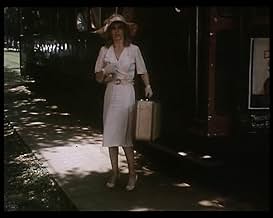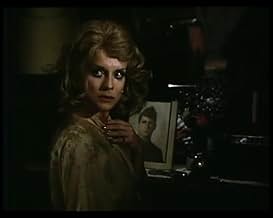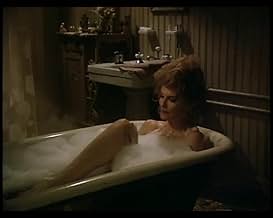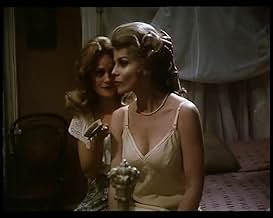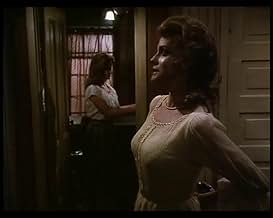Ajouter une intrigue dans votre langueBlanche Dubois goes to visit her pregnant sister and husband Stanley in New Orleans. Stanley doesn't like her, and starts pushing her for information on some property he knows was left to th... Tout lireBlanche Dubois goes to visit her pregnant sister and husband Stanley in New Orleans. Stanley doesn't like her, and starts pushing her for information on some property he knows was left to the sisters. He discovers she has mortgaged the place and spent all the money, and wants to ... Tout lireBlanche Dubois goes to visit her pregnant sister and husband Stanley in New Orleans. Stanley doesn't like her, and starts pushing her for information on some property he knows was left to the sisters. He discovers she has mortgaged the place and spent all the money, and wants to find out all he can about her. Even more friction develops between the two while they are ... Tout lire
- Réalisation
- Scénario
- Casting principal
- Récompensé par 4 Primetime Emmys
- 6 victoires et 9 nominations au total
Avis à la une
Not only is this take on the material more faithful to the original play (by the time the 80's rolled around, you could get away with more on TV than you could get away with on screen in the 50's), but it features a wonderful performance by Ann-Margret as Blanche DuBois. At first, Margret's interpretation of the character is a bit jarring. She's far from the nervous, shrinking violet we're so used to seeing. She has more strength than most other Blanches I've seen, but as the story progresses, one starts to see how this is simply a mask she wears to hide her fear and vulnerability. It's a wonderfully fresh interpretation of the role.
Beverly D'Angelo and Randy Quaid are equally excellent as Stella and Mitch. Treat Williams can't quite seem to escape the shadow of Marlon Brando, but he looks the part and is appropriately brutish as Stanley. Broadway vet Marvin Hamlish's music score is gorgeous and sexy.
Initially, as with many new versions of famous plays, the differences glared out at me: at times, the dialogue tends to be spoken a bit too rapidly; more memorized than natural. And at first, Ann-Margret's sex appeal and confidence is a bit startling compared to the butterfly-like fragility we're used to from Vivien Leigh's iconic turn as Blanche.
But here, A-M makes the character her own. Beverly D'Angelo is fine as sister Stella too, in spite of the variance in height between the two actresses. As this 'Streetcar' rolls on, there are more good moments. Randy Quaid's Mitch plays well with the neurotic Blanche; their scenes are touching and realistic. It would be nice to see them go off into the sunset at the end---of course, Tennessee Williams had other plans---and the climactic confrontation between Stanley and Blanche is every bit as unsettling as it was written to be. All in all, worth a watch---and when Ann-Margret is involved, it's never a waste of time. (Yes, I'm biased. Now see the movie.)
Le saviez-vous
- AnecdotesTennessee Williams wanted Meryl Streep for a film version of "A Streetcar Named Desire" in the 1980s. When Streep proved unavailable, the project was refashioned for television and the role of Blanche given to Ann-Margret.
- Citations
Blanche DuBois: I have always depended on the kindness of strangers.
- ConnexionsEdited into Ann-Margret: Från Valsjöbyn till Hollywood (2014)
- Bandes originalesTil the Blues Get Gone
Written by Marvin Hamlisch and Dean Pitchford
Meilleurs choix
Détails
Contribuer à cette page


